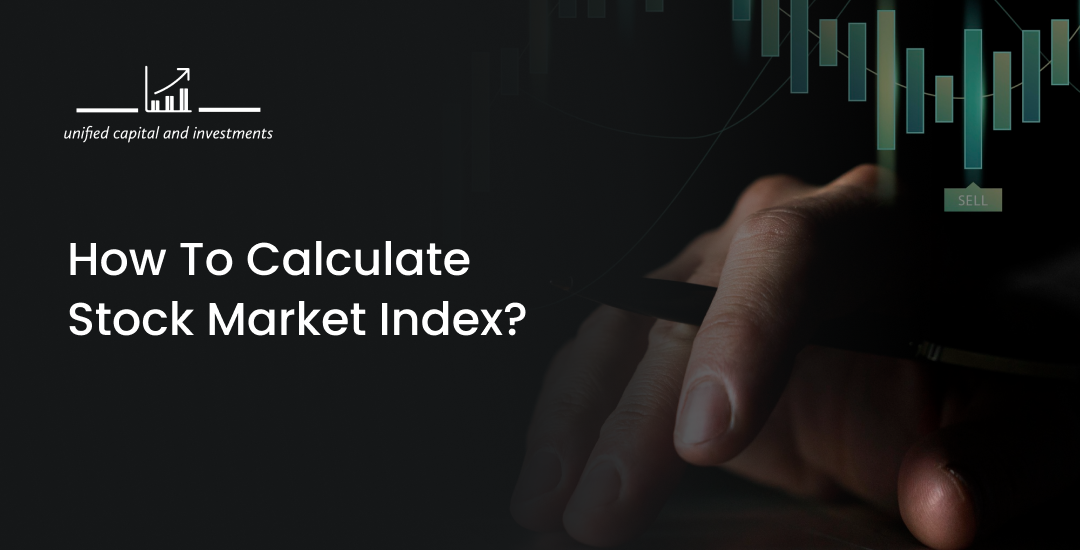About Bizwheel
The main component of a healthy environment for self esteem is that it needs be nurturing. It should provide unconditional warmth.

When you listen to something about the stock market services or indexes, just like the S&P 500, these are all stock market indexes - measures of the overall performance of a particular section of the inventory marketplace. Understanding how those indexes are calculated can provide precious insights into marketplace trends and economic fitness. In this weblog, we will smash down the system of calculating an inventory marketplace index.
A stock marketplace index is a statistical degree that represents the price of a phase of the stock market. It is usually composed of a group of shares that are selected based totally on numerous criteria inclusive of marketplace capitalization, industry, or other factors. The index gives a photograph of market performance and may be used as a benchmark to compare the performance of personal shares or investment portfolios.
There are many styles of stock marketplace indexes, each with its specific method of calculation:
Price-Weighted Index: The charge of this index is based on the stock costs of the companies in the index. In this index, higher-priced stocks have an extra effect on the index’s value.
Market-Capitalization-Weighted Index: This index weights shares primarily based totally on their market capitalization. Companies with good marketplace caps have a bigger impact on the index.
Equal-Weighted Index: In this form of index, all shares have the same weight, regardless of their inventory rate. The same-weighted index gives each business enterprise an identical effect at the index’s value.
Let's damage down the calculation methods for every form of inventory market index.
To calculate a price-weighted index:
Step 1: Add up the inventory costs of all the businesses in the index.
Step 2: Divide the full by using the number of companies within the index to get the average.
However, in practice, maximum fee-weighted indexes are adjusted for stock splits, dividends, and different corporate movements. This is achieved by making use of a ‘divisor’ in the index calculation. The divisor is a range that ensures the index price remains consistent over the years despite modifications in stock fees or corporate movements.
Example:
If the company includes three businesses with inventory prices of $ hundred, $2 hundred, and $300, the full is $six hundred. If the divisor is 3, the index cost might be $200 ($six hundred ÷ 3).
Steps to calculate a market-capitalization-weighted index:
Step 1: Calculate the marketplace capitalization of each employer (stock fee × many shares top-notch).
Step 2: Add up the marketplace capitalizations of all agencies within the index.
Step 3: Divide the whole market capitalization by way of a base price or divisor and get the index value.
Eg:
If the S&P 500 consists of businesses with market capitalizations of $1 trillion, $500 billion, and $ hundred billion. The entire market cap may be $1.6 trillion. If the lowest rate or divisor is 100, the index fee could be sixteen thousand.
To calculate an identical-weighted index:
Step 1: Assign each inventory an equal weight within the index.
Step 2: Calculate the common performance of the stocks.
Example:
If a same-weighted index has 10 companies, each organization contributes 10% to the index. If 5 corporations rise via five and five fall by way of 5%, the general index exchange is neutral because gains and losses cancel out.
Stock Market Services: Many traders rely on inventory marketplace offerings to get real-time records, evaluations, and insights approximately various indexes and shares. These offerings let you stay knowledgeable about marketplace tendencies and make knowledgeable decisions primarily based on index overall performance.
Mutual Funds: Mutual finances often put money into a portfolio of shares that can be protected in various indexes. Understanding how indexes are calculated assists you in assessing the overall performance of mutual funds and their alignment with your investment desires.
Stock market indexes are crucial for several motives:
Benchmarking: Investors use indexes to examine the general overall performance in their portfolios in competition with a market benchmark. This allows in assessing whether or now not their investments are outperforming or underperforming relative to the marketplace.
Economic Indicators: Index overall performance can indicate broader financial tendencies. The rising index may also signal economic increase and the falling index may want to suggest financial downturns.
Investment Vehicles: Many investment companies are designed to track the performance of particular indexes. Permitting traders to advantage of the publicity to a broad section of the market while not having to pick character stocks.
Calculating the Stock Market Index involves various techniques depending on the form of the index. Whether it’s price-weighted, market-capitalization-weighted, or identical-weighted, those calculations can offer a clearer photo of ways indexes reflect marketplace overall performance. By grasping those concepts, buyers can better navigate the complexities of the stock market services and make extra knowledgeable choices.
Leave a comment
All fields marked with an asterisk (*) are required